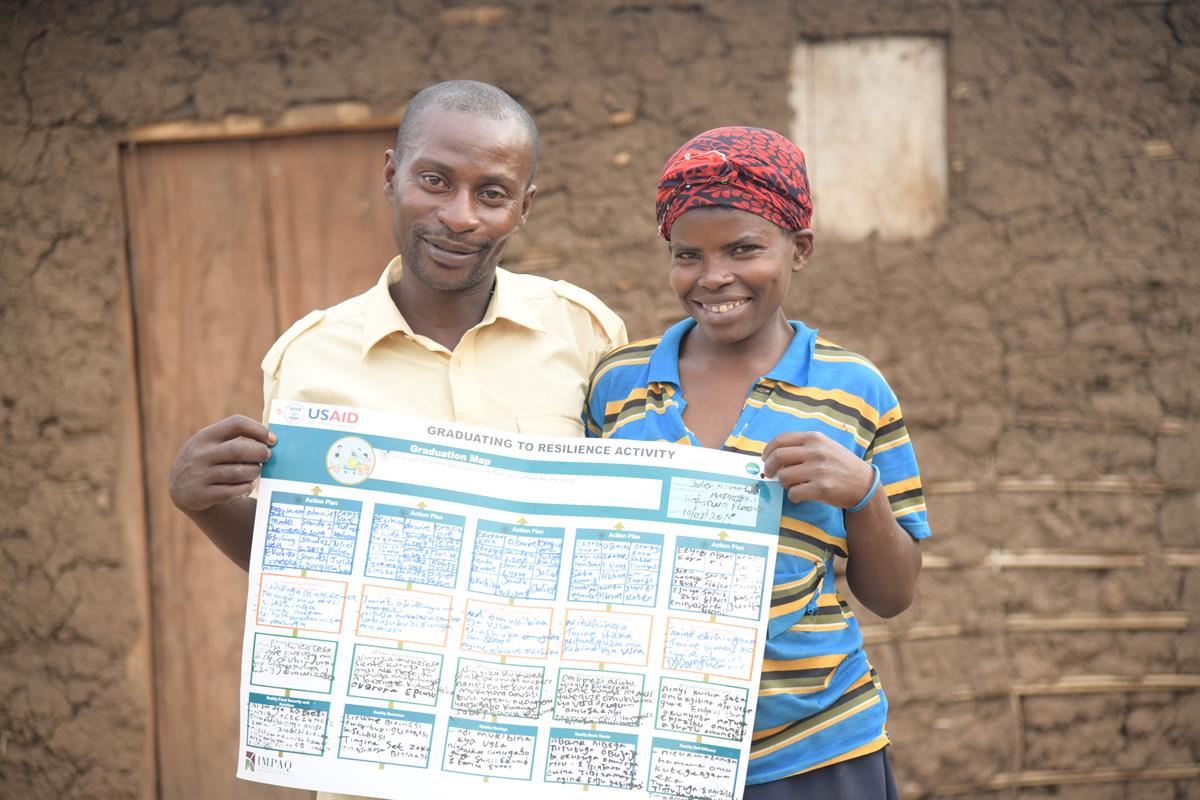After seven months of implementation of the USAID-funded Graduating to Resilience Activity implemented by AVSI in Kamwenge District, there is increasing evidence that the participation of women in initiatives such as saving groups, community dialogues, outreaches and sensitizations is much higher than their male counterparts.
However, Activity staff are reporting that gradually this is changing as the men are being encouraged to join in activities and support their wives and mothers to set goals and take advantage of all that the Activity has to offer them to build a brighter future. During the month of July, coaching messages emphasized collective efforts among women and men because AVSI believes that a joint commitment of couples to shared goals will lead to better results for their families.
“Our plan is to start a business where my wife Ivette and I both play a part,” says Alex Iyamuremye, a mechanic who wants his wife to sell motor spare parts in their shop in Kihora B Zone in the refugee settlement.
A supportive Emmanuel Mujuni instead agreed with his wife, Vastina, that he remains to take care of their home chores whenever she is involved in the farmer group in their village, in Bwizi. They plan together for the dietary needs, cash savings and future investment plans of their family.
The story of Juliet and Fred, the couple who foresees a better future for their children

It is a new beginning for Juliet Uwamahoro and Fred Kabeni, an insightful couple in Mabale parish, Kamwenge District. Both in their mid-30s, they want to have a better life. We see their faces excited after they received their asset transfer, a sum of money provided by Graduating to Resilience to help them start their own business venture.
Before Juliet was enrolled in the Activity, her hopes of a decent life were faint. With their six children, she and Fred lived in a dilapidated hut given to them by their mother. Fred’s mother used the hut as a granary.
We were filled with shame whenever we received people at our house. The hut was small, congested, leaking and in the backyard of another home.
Fred Kabeni, recipient of the Graduating to Resilience project
Florence Kabacwa is the coach who regularly meets Juliet and Fred to prepare them improve their food security and nutrition, meet their basic needs, set savings goals and help them develop income generating ideas. She says the household lived in a shelter that appeared ready to collapse when she first began to coach them. Florence is delighted to see Juliet and Fred greatly improve and work towards the goals they set using the Graduation Map and follow their graduation pathways.
I am happy that I have a supportive husband who helps in doing what we have learned from our coach. We now know that saving and getting loans can be worthy since it helped us pay our children’s school fees in time and now, they have new school uniforms like other children.
Juliet Uwamahoro, recipient of the Graduating to Resilience project
Their plans to feed their family are concrete: they buy food stuffs for the weeks to come and store it in their house. Juliet who initially prepared two meals per day, now assures that her children have three healthy meals, which has improved their health. Every week, she deposits a constant amount at the savings meetings in ‘Kidunduma Tukwatanise’, the group that loaned her money to roof their new house.
Juliet and Fred have a passion for pig rearing, and they envision that this business will finally bring bigger changes in the life of the already grateful family. “Each day I look up to my iron-sheet roofed house and I say, “Thank you AVSI”. We have learned a lot of things from Florence that have changed our lives.”